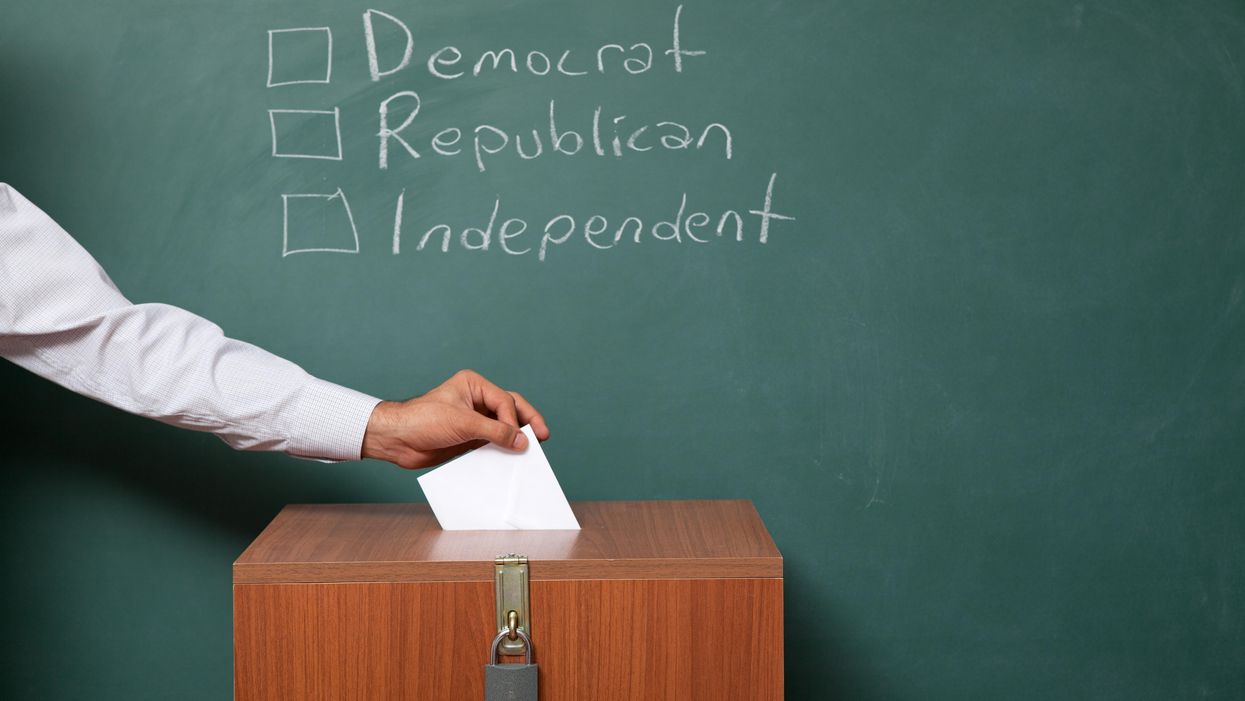More than 100 Republicans, including former federal and state officials, are prepared to launch a new political party if the GOP fails to make a series of unspecified changes, according to a report in The New York Times.
Whether such a new party comes to fruition, it's worth examining the changes needed to ensure the viability of a new force in American politics. After all, others have tried to end the two-party duopoly but rarely do they play more than the role of spoiler.
The 2019 Hidden Common Ground report produced by Public Agenda, USA Today and Ipsos found that 65 percent of Americans agree it should be easier for third-party and independent candidates to run for office, giving voters more than two choices. And in last year's report, 80 percent of respondents agreed that "Traditional parties and politicians don't care about people like me."
Voters had more options than ever before in 2018. According to Unite America, which supports nonpartisan reforms and candidates willing to work across the aisle, a record 431 independents ran for state legislative seats, governor or Congress in 2018, collectively earning more votes than independent candidates in previous cycles. However, only 14 of them won their races.
"The largest barrier facing new competition in America is not structural, it's psychological: a belief that an alternative can be viable and a new identity to align around," said Nick Troiano, executive director of Unite America (which has provided financial support for The Fulcrum). "Yes, we need ranked-choice voting to eliminate the spoiler effect. Yes, we need fair ballot access and debate rules. However, those things are necessary but not sufficient. What any third party really needs is a brand and a constituency that is powerful enough to transcend the tribalism on both the left and the right in order to win elections."
For disaffected Republicans, the appearance of big names in a new party might be enough to galvanize meaningful support. Miles Taylor, who served in the Department of Homeland Security under Donald Trump and authored an op-ed and book highly critical of that administration, is one of the organizers of the potential new party, according to the Times. Reuters has identified a number of other participants, including former members of Congress and two former governors (Tom Ridge of Pennsylvania and Christine Toddy Whitman of New Jersey).
But that may not be enough to give a new party the standing to win elections.
One structural change would be to allow more candidates into debates. Writing last fall about the presidential debate system, Christina Tobin of the Free and Equal Elections Foundation and Eli Beckerman of Open the Debates argued that the system is designed to prevent candidates outside the Democratic and Republican parties from competing.
"At a time when voters are thirsting for more choices, it is absurd to keep Libertarian nominee Jo Jorgensen and Green nominee Howie Hawkins off the stage," they wrote. "Objectively speaking, there are four tickets on the ballots in enough states to win the election, and yet the debate commission has decided to appoint itself as gatekeeper standing between voters and their choices — and assuring just two of those tickets have a shot."
Unite America's post-election report on the candidates it supported in 2018 identified 10 other structural reforms that would allow third-party and independent candidates to compete with the major parties' nominees:
- In addition to more debate access, independents would stand a great chance at the national level if the Electoral College were replaced by a national popular vote.
- Use of ranked-choice voting could end the argument that independents serve only as "spoiler" candidates.
- Moving to multimember districts with proportional representation would ensure independents have their voices heard in legislative bodies.
- Top-two primaries or top-four RCV primaries would give more candidates an opportunity to earn a spot in a two-person general election, rather than appearing down-ballot as a third candidate.
- Nonpartisan ballots would create a more level playing field, because voters would not have preconceived notions based on political labels included on ballots. All candidates would have to spend resources to explain their position, rather than relying on partisan identification.
- While straight-party voting speeds up the process for voters, it hurts independents by allowing someone to vote for all candidates of one party across all races with one action rather than considering them race by race.
- Ballot access requirements vary by state and in some places can be prohibitively expensive and time-consuming. Easing the rulings to get on the ballot would level the playing field for third-party and independent candidates who lack the resources possessed by the two major parties.
- Similarly, independents and third-party candidates face fundraising disparities when compared to their Democratic and Republican opponents, who can rely on their parties for significant financial support.
- Many states have "sore loser" laws, which prevent candidates from running in a general election as an independent after losing a primary. While the party base may not choose certain candidates, those people may have significant support among other voters.




















